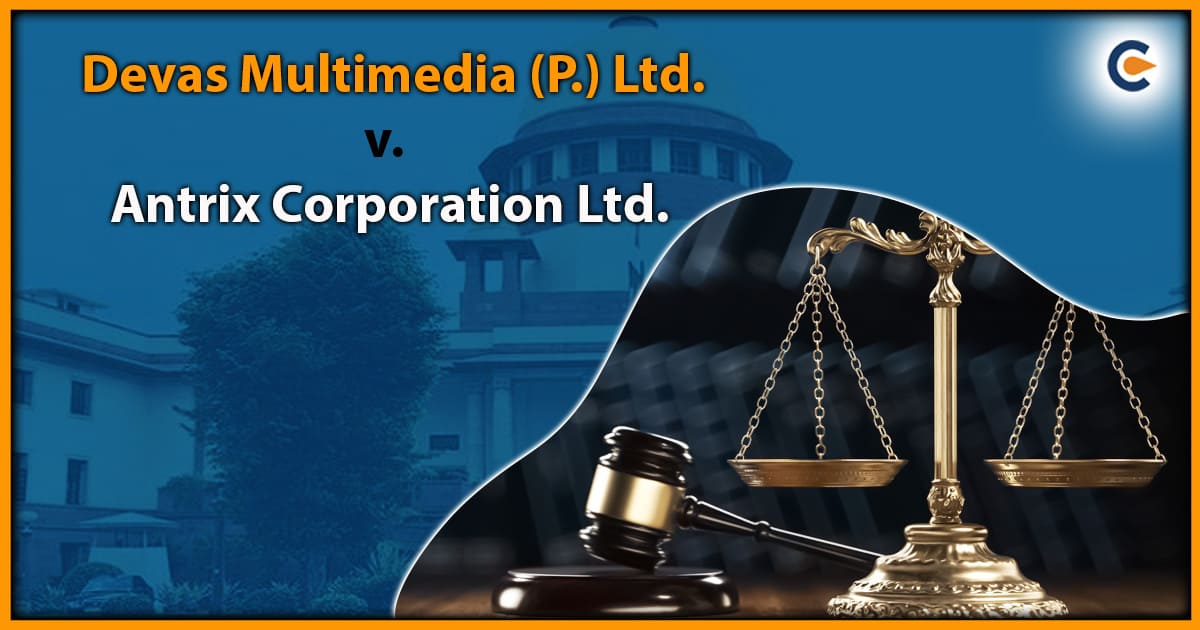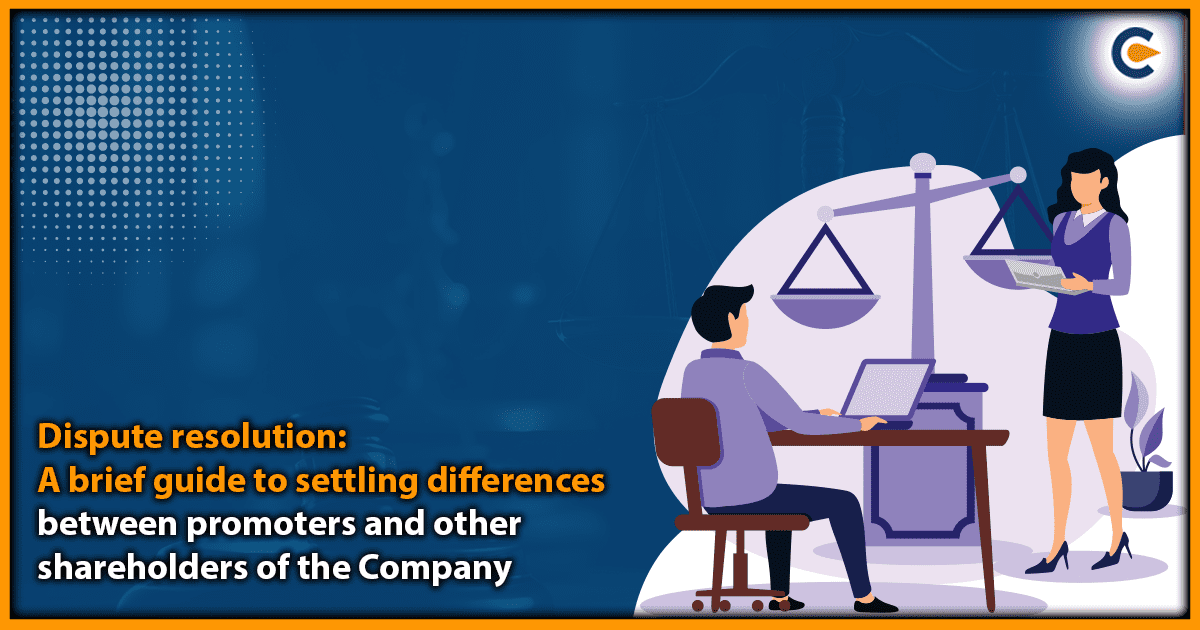SC Upholds NCLAT Order on Winding Up of Devas on the Grounds of Fraud
In a significant ruling, the Supreme Court of India recently upheld the National Company Law Appellate Tribunal’s (NCLAT) order regarding the winding up of Devas Multimedia (P.) Ltd., based on allegations of fraud. The case, Devas Multimedia (P.) Ltd. v. Antrix Corporation Ltd., has captured the attention of the business and legal communities alike due to its implications for corporate governance and accountability. This blog explores the background, key details, and the implications of the Supreme Court’s decision.
Background of the case
Devas Multimedia (P.) Ltd. v. Antrix Corporation Ltd. is a notable case that unfolded in India’s corporate and legal landscape. The case revolves around allegations of fraud and financial irregularities in a contract between Devas Multimedia and Antrix Corporation, the commercial arm of the Indian Space Research Organisation (ISRO[1]). The following provides a background of the case, shedding light on the events that led to the legal dispute.
In 2005, Devas Multimedia, a multimedia service provider, entered into an agreement with Antrix Corporation. The agreement aimed to leverage ISRO’s satellite spectrum to provide satellite-based multimedia services to customers in India. The deal held promising potential for both companies, as it combined Devas Multimedia’s multimedia expertise with Antrix Corporation’s access to ISRO’s advanced satellite technology.
However, as the project progressed, allegations of irregularities and financial impropriety emerged. Antrix Corporation accused Devas Multimedia of securing the contract through misrepresentation and concealing vital information about its financial health. Antrix Corporation claimed that Devas Multimedia had misrepresented its capabilities, financial standing, and the nature of its relationship with foreign investors during the negotiation process.
The allegations gained traction, leading to an investigation into the agreement and the business practices of Devas Multimedia. The investigation aimed to ascertain the veracity of the claims made by Antrix Corporation and determine whether there was any fraudulent activity involved. The inquiry sought to uncover any potential wrongdoing and protect the interests of both companies and their stakeholders.
Based on the findings of the investigation, Antrix Corporation filed a winding-up petition before the National Company Law Appellate Tribunal (NCLAT). The petition sought to dissolve Devas Multimedia on the grounds of fraud and financial irregularities. The NCLAT, after carefully examining the evidence presented by both parties and hearing their arguments, ruled in favor of Antrix Corporation. The tribunal concluded that Devas Multimedia had indeed engaged in fraudulent activities and that the winding-up of the company was justified in the interest of justice and corporate governance.
Unsatisfied with the NCLAT’s decision, Devas Multimedia appealed to the Supreme Court of India. Devas Multimedia hoped for a reversal of the winding-up order and a favorable outcome in its legal battle with Antrix Corporation. However, in its verdict, the Supreme Court upheld the NCLAT’s order, affirming the gravity of the fraud allegations and underscoring the importance of corporate transparency and accountability.
The Supreme Court’s decision in the Devas Multimedia case marked a significant moment in the pursuit of corporate governance and ethical conduct in India. The ruling highlighted the court’s commitment to maintaining the highest standards of business integrity and the duty of directors to act in the best interests of their companies. It also sent a strong message to companies that fraudulent activities would not be tolerated and that legal repercussions could follow such misconduct.
Overall, the case of Devas Multimedia (P.) Ltd. v. Antrix Corporation Ltd. serves as a prominent example of the legal battles and challenges faced in ensuring transparency, fairness, and ethical conduct in the corporate sector. It stands as a testament to the Indian judiciary’s commitment to upholding corporate accountability and serves as a reference point for future cases involving fraud and financial improprieties.
Key allegations and NCLAT order
In the case of Devas Multimedia (P.) Ltd. v. Antrix Corporation Ltd., several key allegations were made against Devas Multimedia, leading to a winding-up petition filed by Antrix Corporation before the National Company Law Appellate Tribunal (NCLAT). The NCLAT subsequently issued an order in response to these allegations. Let’s delve into the key allegations and the NCLAT order in detail.
Key Allegations
- Misrepresentation: Antrix Corporation alleged that Devas Multimedia had misrepresented its capabilities and financial standing during the contract negotiations. It was claimed that Devas Multimedia provided false or misleading information to secure the contract with Antrix Corporation.
- Concealing Vital Information: Antrix Corporation accused Devas Multimedia of concealing crucial information regarding its financial health and the nature of its relationship with foreign investors. It was alleged that Devas Multimedia intentionally withheld pertinent details, which could have influenced the decision-making process.
NCLAT Order
After considering the allegations and reviewing the evidence presented by both parties, the NCLAT issued an order in favor of Antrix Corporation. The tribunal concluded that Devas Multimedia had engaged in fraudulent activities, justifying the winding-up of the company. The NCLAT’s order was based on the following observations:-
- Fraudulent Activities: The NCLAT determined that the actions of Devas Multimedia amounted to fraud. The company’s misrepresentation and concealment of vital information were considered serious breaches of corporate integrity and good faith.
- Interest of Justice: The NCLAT recognized the importance of upholding justice and maintaining corporate governance standards. In light of the alleged fraud committed by Devas Multimedia, the tribunal deemed the winding-up of the company as a suitable course of action.
The NCLAT’s order, upholding the allegations of fraud and ordering the winding-up of Devas Multimedia, marked a significant development in the case. It indicated that the tribunal found the evidence and arguments presented by Antrix Corporation to be compelling and sufficient to support the allegations made against Devas Multimedia.
The NCLAT’s decision reflects the importance of transparency, honesty, and ethical conduct in business dealings. It underscores the need for companies to adhere to the highest standards of corporate governance and act in the best interests of their stakeholders. By upholding the order, the NCLAT emphasized the consequences that companies may face when engaging in fraudulent activities.
It is important to note that the Supreme Court of India subsequently upheld the NCLAT’s order in this case, solidifying the tribunal’s findings and reaffirming the gravity of the allegations against Devas Multimedia.
Supreme court’s verdict
In the case of Devas Multimedia (P.) Ltd. v. Antrix Corporation Ltd., the Supreme Court of India delivered its order after the matter was appealed from the National Company Law Appellate Tribunal (NCLAT). Let’s explore the Supreme Court’s order and its implications in the case.
Supreme Court’s Order
The Supreme Court upheld the order of the NCLAT, affirming the winding-up of Devas Multimedia. In its judgment, the court recognized the gravity of the fraud allegations and the importance of corporate governance and transparency. The following key points were highlighted in the Supreme Court’s order:
- Upholding the NCLAT’s Findings: The Supreme Court agreed with the NCLAT’s conclusion that Devas Multimedia had engaged in fraudulent activities. It upheld the NCLAT’s determination that the company had misrepresented critical information and concealed vital details during the contract negotiations.
- Corporate Governance and Accountability: The court stressed the significance of maintaining the highest standards of corporate governance and the duty of directors to act in the best interests of their companies. It emphasized that fraudulent activities undermine the integrity of business transactions and erode the trust between commercial entities.
- Consequences of Fraud: The Supreme Court recognized the serious consequences of fraudulent actions in the corporate sphere. It emphasized that companies engaging in fraud cannot expect to escape legal repercussions and that the law will hold them accountable for their misconduct.
Implications of the Supreme Court’s Order
The Supreme Court’s decision in the Devas Multimedia case carries several implications:
- Deterrence of Fraud: The judgment serves as a deterrent to companies involved in fraudulent activities. It sends a strong message that such behavior will not be tolerated, reinforcing the need for transparency, honesty, and ethical conduct in business dealings.
- Upholding Corporate Integrity: By upholding the NCLAT’s order, the Supreme Court emphasizes the importance of upholding corporate integrity and maintaining the trust of stakeholders. The ruling establishes a precedent for future cases involving fraud and underscores the need for robust corporate governance practices.
- Protection of Stakeholders: The judgment serves to protect the interests of stakeholders by ensuring that companies act responsibly and honestly. It demonstrates the court’s commitment to safeguarding the rights of shareholders, creditors, and other parties affected by fraudulent activities.
The Supreme Court’s order in the case of Devas Multimedia (P.) Ltd. v. Antrix Corporation Ltd. affirmed the NCLAT’s findings and upheld the winding-up of Devas Multimedia. The judgment reiterates the court’s commitment to corporate governance, transparency, and accountability. It highlights the consequences that companies may face when engaging in fraudulent activities and sets a precedent for future cases involving similar allegations. The ruling emphasizes the importance of ethical conduct in the corporate sector and serves as a reminder of the court’s role in upholding justice and protecting stakeholders’ interests.
Implications of Corporate Governance
The case of Devas Multimedia (P.) Ltd. v. Antrix Corporation Ltd. has significant implications for corporate governance in India. The following are some of the key implications arising from this case:
- Transparency and Disclosure: The case emphasizes the importance of transparency and full disclosure in business transactions. Companies must provide accurate and complete information during negotiations to ensure fair decision-making and the protection of stakeholders’ interests. Failure to disclose vital information can lead to allegations of fraud and have severe consequences for the company involved.
- Directorial Responsibility: The judgment highlights the duty of directors to act in the best interests of the company and its stakeholders. Directors must exercise due diligence and ensure that the information presented during negotiations is accurate and reliable. They have a responsibility to maintain the highest standards of corporate governance and ethical conduct, placing the interests of the company above personal gain.
- Fraud Prevention and Deterrence: The case serves as a deterrent against fraudulent activities. The court’s decision reinforces the message that fraudulent behavior will not be tolerated and carries severe legal repercussions. This acts as a strong deterrent for companies and individuals contemplating engaging in fraudulent practices, promoting a culture of compliance and ethical conduct in the corporate sector.
- Accountability and Corporate Integrity: The case underscores the importance of accountability and corporate integrity. Companies engaging in fraudulent activities face the risk of winding-up and legal consequences. Upholding the principles of corporate integrity helps maintain public trust in businesses, strengthens investor confidence, and fosters a healthy business environment.
- Judicial Role in Corporate Governance: The case showcases the judiciary’s role in upholding corporate governance standards. The Supreme Court’s affirmation of the NCLAT’s order demonstrates the judiciary’s commitment to ensuring corporate accountability and protecting the interests of stakeholders. Judicial intervention in cases of fraud and misconduct reinforces the rule of law and instills confidence in the legal system.
- Due Diligence and Risk Assessment: The case emphasizes the importance of conducting thorough due diligence and risk assessment before entering into business agreements. Companies should critically evaluate the financial health and capabilities of their potential partners to make informed decisions. Failure to conduct proper due diligence exposes companies to the risk of engaging with fraudulent entities, potentially leading to legal and financial consequences.
Overall, the case of Devas Multimedia (P.) Ltd. v. Antrix Corporation Ltd. serves as a reminder of the essential role of corporate governance in maintaining transparency, accountability, and ethical conduct in business transactions. It highlights the significance of adherence to corporate governance principles, proper disclosure of information, and the duty of directors to act in the best interests of the company and its stakeholders.
Conclusion
The Supreme Court’s upholding of the NCLAT’s order in the Devas Multimedia case represents a crucial milestone in the pursuit of corporate accountability and transparency in India. By emphasizing the gravity of fraud allegations and the importance of maintaining high standards of corporate governance, the court has sent a strong message to businesses across the country. This landmark ruling serves as a reminder that ethical conduct, honesty, and transparency are essential for the sustainability and growth of the corporate sector. It sets a precedent for future cases involving fraudulent
Read our Article: National Company Law Tribunal (NCLT) – All You Need To Know











